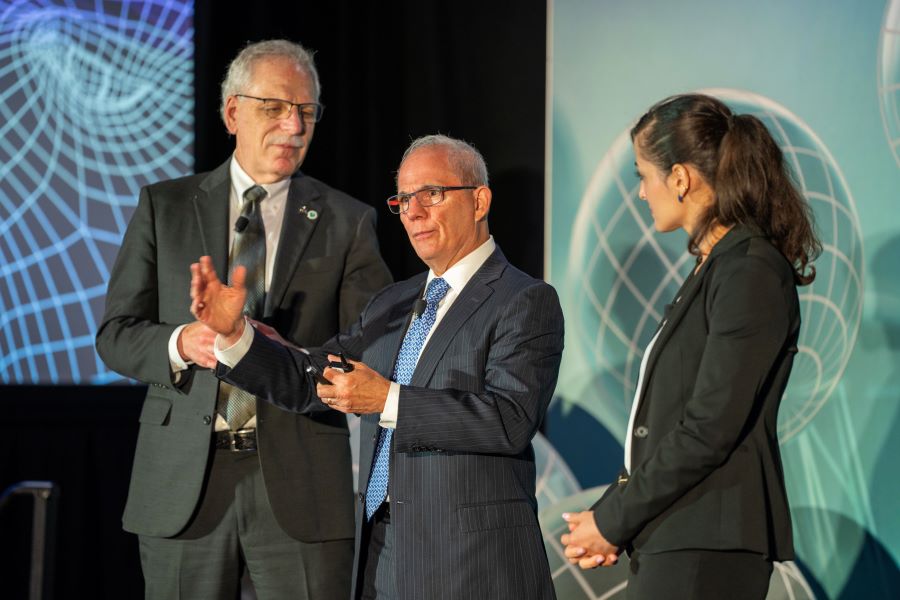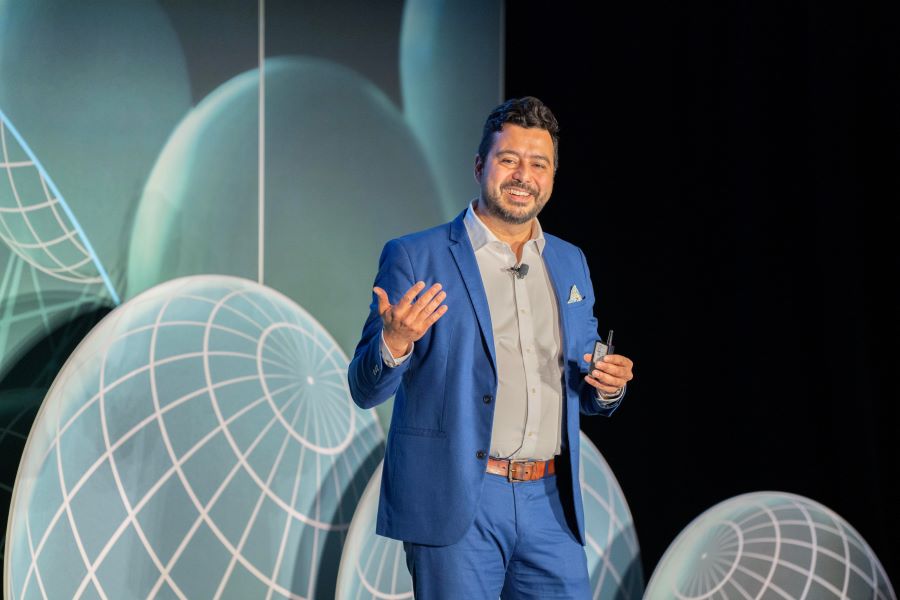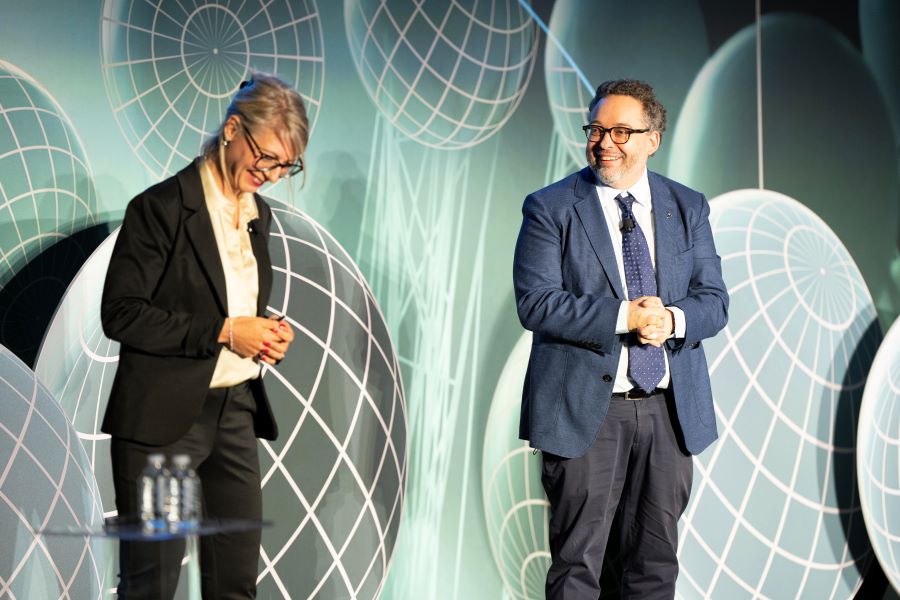More than a week after Dassault Systèmes Science Week rolled into Boston’s Revere Hotel, I’ll admit my mind’s still racing.
With the theme of “Science Metamorphosing Society,” Science Week 2023 brought together Dassault Systèmes’ two main science events “Science in the Age of Experience” and the “Virtual Human Twin Experience Symposium” from June 6-8 in Boston.
The complimentary events brought together an impressive collection of clinicians, scientists, researchers, industry players and regulators for discussions designed to connect the dots between their work and catalyze new knowledge and know-how.
Extraordinary sessions wondered what’s next for cancer research and examined the role of fungi in achieving a more sustainable world. They tackled hot topics, such as AI and alternative proteins. And shared stories showcasing the immense potential of virtual twins in healthcare, as well as some challenges.
Without further ado, here are five things I’m still thinking about now more than a week after Science Week 2023 in Boston.
Vision for virtual human twins
What started a decade ago as a bold idea for bringing together a community of experts to build a virtual human heart has evolved into a global effort by Dassault Systèmes to virtually recreate the entire body as a virtual human twin to serve as a next gen healthcare reference.
Over the years, we’ve expanded the use of virtual twins beyond the heart to include the brain, the lungs, the kidney, the liver and a new project to build the Living Eye, which unveiled just last week at the symposium. A few examples of the current uses of these virtual twins include:
- Living Heart: cardiac operation planning
- Living Brain: medical boards and surgical planning
- Living Lung: medical device personalization
A virtual human twin would open up even more possibilities for innovations in healthcare. Dassault Systèmes is committed to building a virtual human twin experience to serve as a single-source of truth, interconnected and informed by data, to guide the future of medicine. And that’s only the next ambition. After that, imagine virtual human twins, virtual twins of hospitals, drugs and entire healthcare systems. The dream is big and the possibilities are endless.
As Patrick Johnson, our SVP of Corporate Science and Research, said: we’re the catalysts, but we need the symposium’s community to help advance toward this “next generation of medical art.”
Speaking of the Living Eye Project…

The Virtual Human Twin Experience’s second day produced a bit of news when Debbie Dean, president of La Fondation Dassault Systèmes Americas, announced approval of a grant to Mass Eye and Ear and Harvard Medical School to embark on a project to create a first-of-its kind Living Eye virtual twin.
The project will focus on the dense area behind the eyeball, where the optic nerve connects the eye to the brain and where two relatively common forms of blindness – glaucoma and non-arterior ischemic optic neuropathy (NAION) occur.
Mass Eye and Ear’s Dr. Joseph Rizzo, the project lead, explained the living eye virtual twin will help understand changes that occur in the dense collection of blood vessels behind the eyeball, a region so dynamic it was impossible to fully understand by looking at tissues and scans.
The benefits of a virtual twin of the eye will include enhanced understanding of eye disease, innovation in treatment and advancements toward a cure for blindness and restoration of sight.
AI in healthcare
By now most of us accept that AI is everywhere, but it’s always interesting to get a look under the hood to see and hear how it works. Mid-morning sessions on Day 1 of Science in the Age of Experience gave us just that.
In his talk on value creation via AI in biotech, Lucas Nivon, co-founder and CEO of Cyrus Biotechnology, introduced us (or this writer anyway) to foundational “AIFold” models in protein biochemistry, including AlphaFold2, RoseTTAFold and OpenFold.

Describing himself as an “AI realist,” Nivon said many problems are still better solved by traditional tools and physical modeling, but he believes new AI tools will surpass traditional ones.
Cyrus is a co-founder of one of those new tools: OpenFold, which is a “non-profit AI research and development consortium developing free and open-source tools for biology and drug discovery.” (Dassault Systèmes is a member of OpenFold.)
AI folding, Nivon explained, makes more proteins approachable as computer-design biologics. With researchers around the world being able to use and improve the tool, the OpenFold protein modeling tool will be able to predict molecular structures with incredible accuracy. The protein AI-discovered biologics will be at the intersection of technology and clinical need, Nivon said.
Precision fermentation
Food science was the story Wednesday morning as we heard from about creating a resilient food system from Professor William Chen of Singapore’s Nanyang Technological University and alternative protein as a positive future of food from Bel Group’s Dr. Anne Pitkowski. The unexpected topic the two talks had in common: precision fermentation.
For Chen, precision fermentation is a key innovation in food and the future of food systems. He provided a couple of examples, including nutrient recovery, biodegradable packaging and an interesting upcycling example in which a brewer’s spent grain could be re-used as yeast in beer manufacturing.
For Pitkowski, precision fermentation plays a big role in Bel Group’s efforts to develop alternative microbial proteins for their cheese products. Bel Group makes Laughing Cow, Babybel, Boursin and other products.

Made from sugar- or CO2-based fermentation, microbial proteins, Bel Group can use the microbial proteins to make more plant-based cheeses. And this is the kind of science Bel Group is investing in to help make the company’s food production more sustainable, Pitkowski said.
It might not have been on my bingo card of hot topics going into Science Week, but Chen and Pitkowski piqued my interest with precision fermentation and it’s a topic I’ll want to learn more about for sure.
Science is in our DNA
We’re not shy about saying Dassault Systèmes is a science-based company and there was no mistaking that fact during the Science Week events. From the speakers, sessions and questions in the ballroom to the conversations over lunch in the playground, the enthusiasm for knowledge sharing and science-based innovation was apparent, infectious and invigorating.
But being a science-based company means demonstrating our belief in science by and for humans for all 52 weeks in the year. As the Science in the Age of Experience sessions concluded mid-day Wednesday, our host for the week Patrick Johnson, unveiled a new Science page on the Dassault Systèmes website. Visit the page to learn more about Dassault Systèmes’ perspectives and activities in three areas we’re calling “science for a purpose,” “applied science” and “living science.”
Check out the full Science Week agenda and stay tuned for news about session replays.

